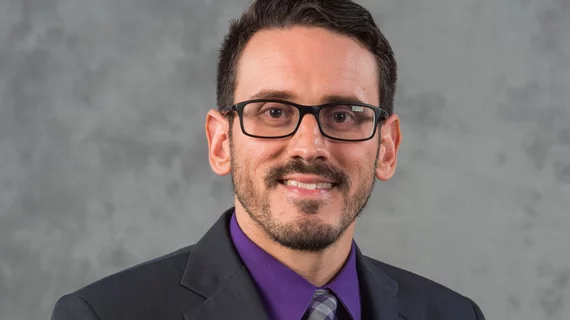Radiologists urge peers to avoid ceding authority to nonphysician practitioners, opt for AI instead
A group of radiologists are urging their peers to avoid ceding authority to nonphysician practitioners, warning of “unintended consequences” on the specialty’s future.
They’re advocating, instead, for the use of artificial intelligence, which costs less, integrates easily into workflows, and is less likely to take over their duties. Daniel Ortiz, MD, and three colleagues made their case against granting nurse practitioners, physician assistants and other doc “extenders” full practice authority in an editorial published this week in JACR.
“Like many decisions being made by today’s radiology community, short term gains by expanding the use of [nonphysician practitioners] will have unforeseen consequences for the future of the specialty, especially radiologists early in their careers and medical students considering the specialty,” concluded Ortiz, with Summit Radiology Services in Cartersville, Georgia, and MD co-authors from three other institutions. “The ultimate goal for our community should not be relegating work to others, but rather to work the complexities of developing a future where we empower ourselves to remain at the helm of the imaging care to our patients’ benefit.”
As examples of this concern, the writers cited Georgia legislation. Signed by Gov. Brian Kemp in August, Senate Bill 321 allows advanced practice registered nurses to order CT, MR and other imaging exams in certain scenarios. While advocates say such measures might lessen labor costs and free radiologists up to handle more complex imaging procedures, Ortiz et al. worry it’s a slippery slope.
“If one year we agreed upon a catalog of procedures to be relegated, do we really believe it will stop at those procedures deemed ‘simple’ by radiologists? Radiology, particularly interventional radiology, already finds itself in ever-growing struggles with other physicians for access to procedures, such as cardiac imaging or vascular interventions,” they wrote.
Instead, the physicians are pushing peers to consider artificial intelligence algorithms that are highly specialized, gaining payer traction, and unlikely to earn unsupervised autonomy. “Empowered by AI, radiologists can achieve their wish of being as ubiquitous as water and remain heralded as diamonds,” Ortiz et al. argued.
Read more of the pre-proof opinion piece in the Journal of the American College of Radiology here. A counterpoint to the editorial is slated to be published in a future issue of JACR.

